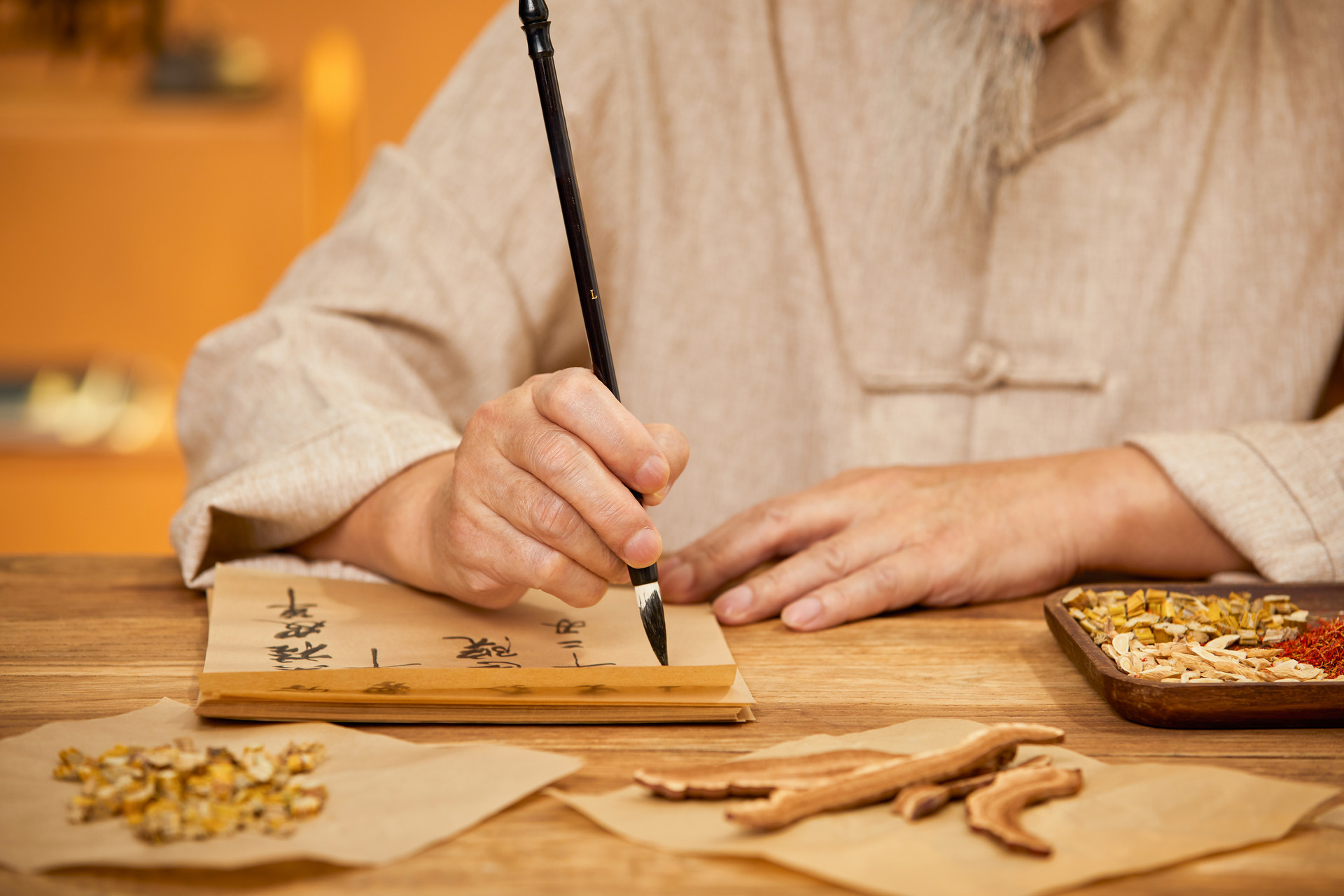According to traditional Chinese medicine, alcohol is considered a hot and damp substance that rises in the body. Excessive alcohol consumption can lead to symptoms such as nausea, thirst, headache, dizziness, and loss of appetite. It can also cause damage to important organs such as the liver, kidneys, stomach, spleen, and heart, and in severe cases, it can lead to death. Therefore, to prevent drunkenness, it is recommended to eat something before drinking, such as high-protein vegetables or foods, or drink soy milk, so that these foods can react with alcohol in the stomach and reduce its absorption. Eating fruits can also be effective in preventing and treating drunkenness. If discomfort occurs after heavy drinking, you can also try some traditional Chinese medicine hangover remedies to relieve symptoms.
Ge Hua Jie Cheng Tang (Pueraria Flower Decoction)
Ge Hua Jie Cheng Tang is a commonly used remedy for hangovers and is recorded in Li Dongyuan's "Pi Wei Lun" during the Yuan Dynasty. It consists of 15g of Pueraria flower, cardamom, and amomum, 6g of dried ginger, shenqu, ze xie, and white atractylodes, 4.5g of poria, tuckahoe, ginseng, and tangerine peel, 1.5g of saussurea, and 1g of immature orange peel. Grind them into a fine powder and take 9g each time, mix with boiling water and drink warm or decoct with water and drink.
In this formula, Pueraria flower is sweet in taste and cool in nature. It has the effects of invigorating the spleen and stomach, generating body fluids, relieving thirst, and alleviating hangover symptoms. It helps to expel the pathogenic dampness caused by alcohol from the body. Poria, tuckahoe, and ze xie have diuretic properties and help to eliminate the dampness caused by alcohol through urine. Amomum, cardamom, immature orange peel, tangerine peel, saussurea, and dried ginger regulate qi, relieve stagnation, and alleviate bloating. Amomum and cardamom have aromatic properties that can invigorate the spleen, stimulate appetite, stop vomiting, and aid digestion. When combined with shenqu, they can help to dissolve accumulated food in the stomach, relieve hangover symptoms, and promote digestion. Excessive alcohol consumption can harm the spleen, so ginseng and white atractylodes are used to invigorate the spleen and reinforce qi. Ginseng also enhances the liver's enzyme activity, improving its detoxification capacity and increasing the body's tolerance to chemical substances. The combination of these herbs in the formula helps to eliminate dampness and heat, warm the middle, and invigorate the spleen. It can be used for acute alcohol intoxication or chronic alcohol-related damage to the spleen and stomach. However, it is important to note that individuals have different body constitutions, with variations in yin and yang. Therefore, the effects of alcohol-induced diseases can also be categorized as cold or hot patterns. Ge Hua Jie Cheng Tang treats conditions characterized by deficiency-cold of the spleen and stomach, weak yang, and dampness transforming into cold. For individuals with a yang constitution, where dampness transforms into heat and there is excessive damp-heat accumulation, symptoms such as flushed face, restlessness, and thirst for cold drinks may occur. In such cases, the formula should be modified by reducing the amounts of dried ginger, white atractylodes, and saussurea, and using herbs such as Scutellaria, Coptis, and Gardenia that have bitter and cold properties to clear heat.
Qing Shuang Lu (Cooling and Refreshing Dew)
Take 5g of peppermint, 10g of chrysanthemum flowers, 5g of Pueraria flower, 15g of hawthorn, and 15g of white hair grass root. Decoct with water or brew with boiling water as a tea and drink frequently.
In this formula, peppermint has a pungent taste and cool nature. It belongs to the liver and lung meridians and can disperse heat, relieve wind, soothe the liver, resolve depression, and detoxify. Research has found that peppermint has good antipyretic, diaphoretic, anti-inflammatory, and hepatoprotective effects. It can prevent hangover headaches, protect the liver from alcohol damage, and protect the gastric mucosa. Chrysanthemum flowers have a pungent, sweet, and bitter taste, a slightly cool nature, and belong to the liver and lung meridians. They can disperse wind-heat, soothe the liver, improve vision, and clear heat and detoxify. They can be used for hangover symptoms such as headache, dizziness, restlessness, and red, swollen, and painful eyes. Pueraria flower has a sweet taste and cool nature. It is good at relieving alcohol toxicity, invigorating the spleen and stomach, relieving thirst, and treating excessive drinking, headache, dizziness, restlessness, thirst, and vomiting. Research has shown that the active ingredients in Pueraria flower can activate the activity of alcohol dehydrogenase and aldehyde dehydrogenase in the blood and liver, accelerate the breakdown of alcohol and aldehyde in the blood and liver, and thus reduce their levels and relieve hangover symptoms. Hawthorn has a sour and sweet taste, a slightly warm nature, and belongs to the spleen, stomach, and liver meridians. It can promote digestion, resolve food accumulation, activate blood circulation, and disperse stasis. White hair grass root has a sweet taste and cold nature, and belongs to the lung, stomach, and bladder meridians. It can clear heat, diuretic, generate body fluids, and stop vomiting. Research has shown that the potassium salts contained in white hair grass root may be related to its diuretic effects. White hair grass root also has immunomodulatory, anti-tumor, hemostatic, anti-bacterial, anti-hepatitis, and analgesic effects. The combination of these herbs in the formula plays a role in clearing heat, refreshing the mind, soothing the stomach, stopping vomiting, and promoting urination. It is suitable for hangover vomiting, chest fullness, restlessness and thirst, dizziness, headache, and short and red urine.
Zhi Ge Yin (Hawthorn and Pueraria Drink)
Take hawthorn








